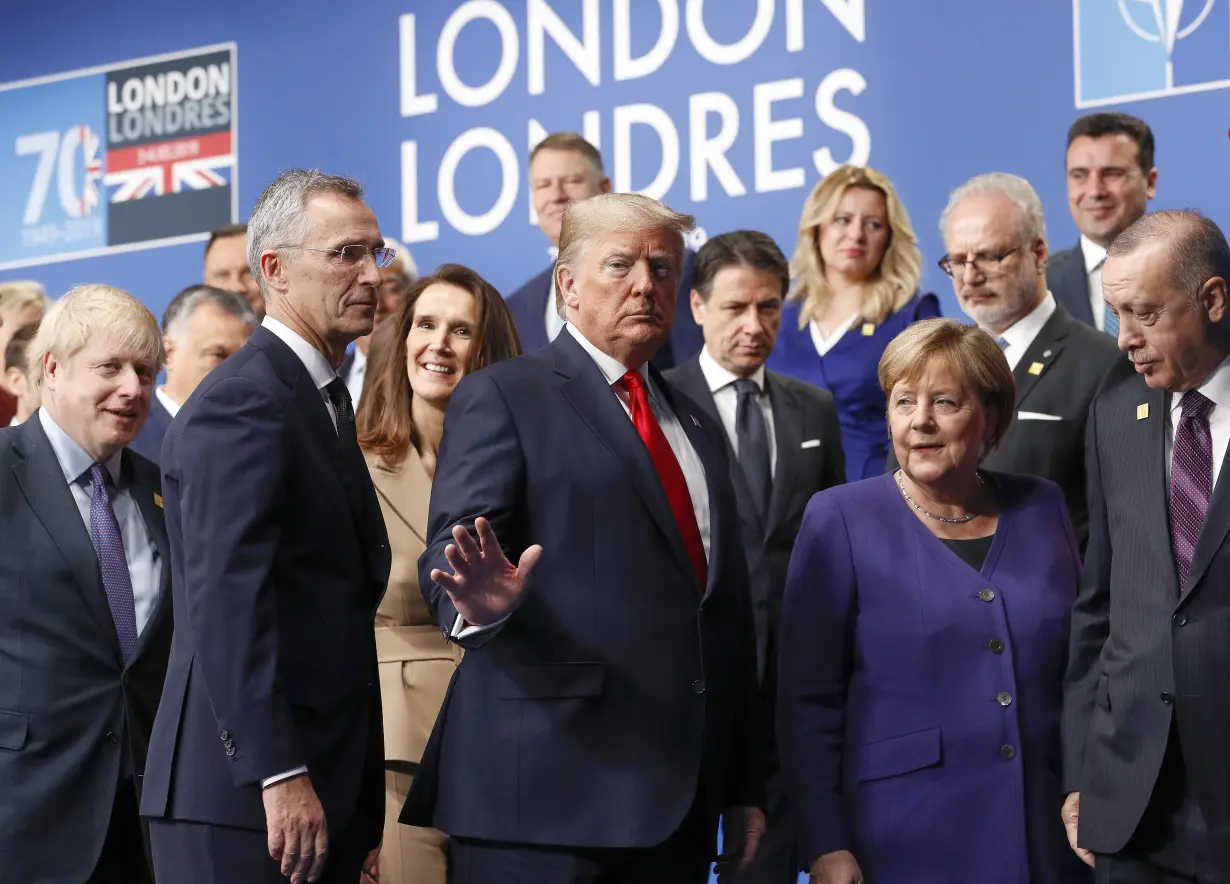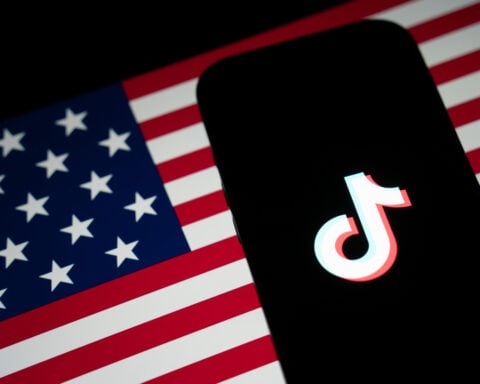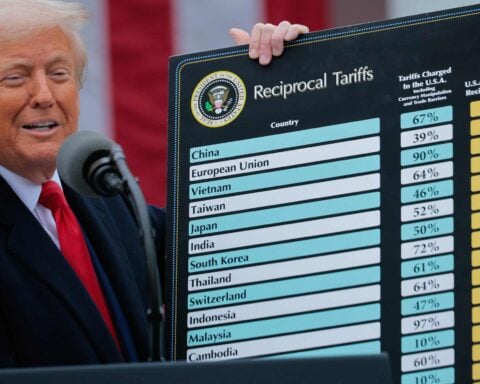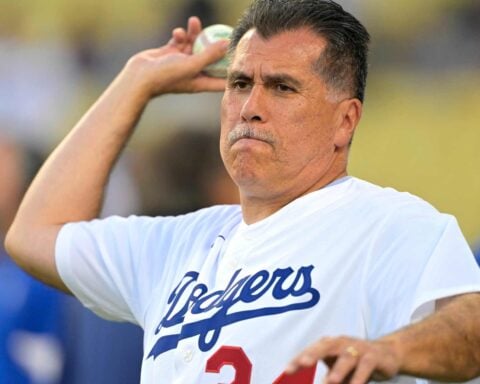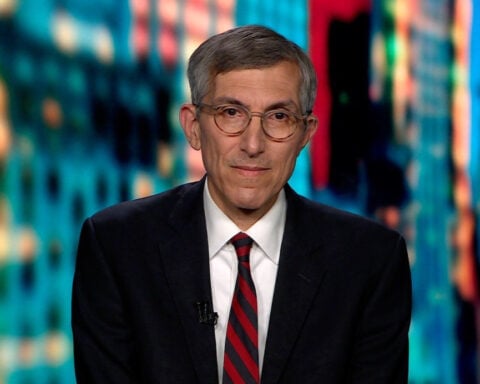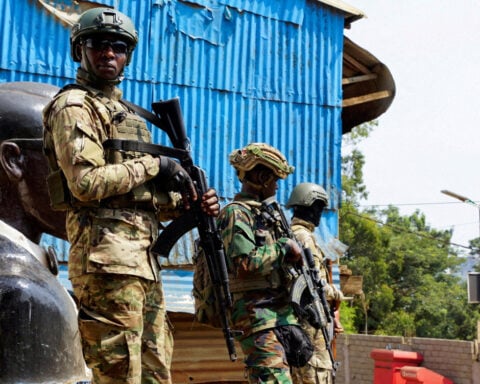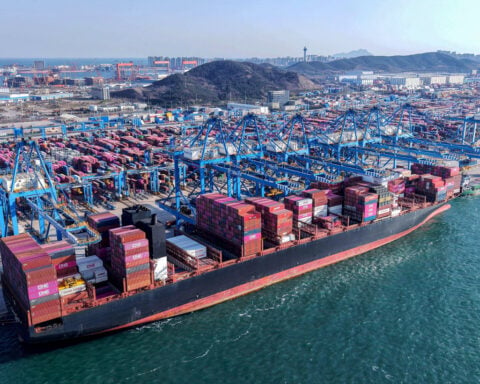WARSAW, Poland (AP) — Donald Trump, the front-runner for the Republican Party's nomination this year, says he once warned that he would allow Russia to do whatever it wants to NATO member nations that are “delinquent” in devoting 2% of their gross domestic product to defense.
Trump's comment on Saturday represented the latest instance in which the former president seemed to side with an authoritarian state over America's democratic allies. It also adds to evidence that the 77-year-old either does not understand how NATO works or is distorting the truth for political gain.
WHAT DID TRUMP SAY?
Speaking at a rally in Conway, South Carolina, Trump recalled how as president he told an unidentified NATO member that he would withhold U.S. help and “encourage” Russia to do as it wishes with allies that do not contribute enough to military spending.
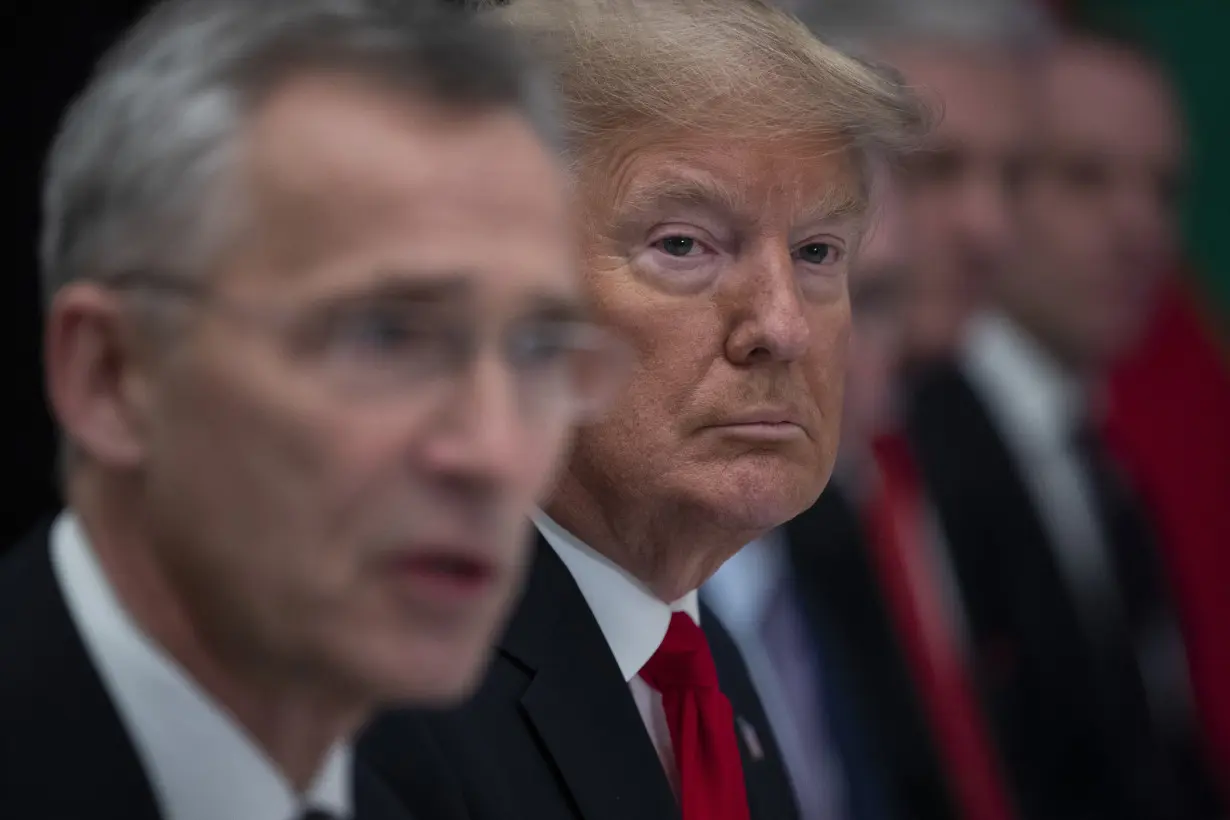
“‘You didn’t pay? You’re delinquent?’” Trump recounted saying. “‘No, I would not protect you. In fact, I would encourage them to do whatever the hell they want. You gotta pay. You gotta pay your bills.’”
NATO Secretary-General Jens Stoltenberg shot back with an unusually strong statement saying that Trump was threatening the security of the entire trans-Atlantic alliance.
“Any suggestion that allies will not defend each other undermines all of our security, including that of the U.S., and puts American and European soldiers at increased risk,” Stoltenberg said.
President Joe Biden, who is on track toward a rematch against Trump in November, also issued a statement criticizing Trump.
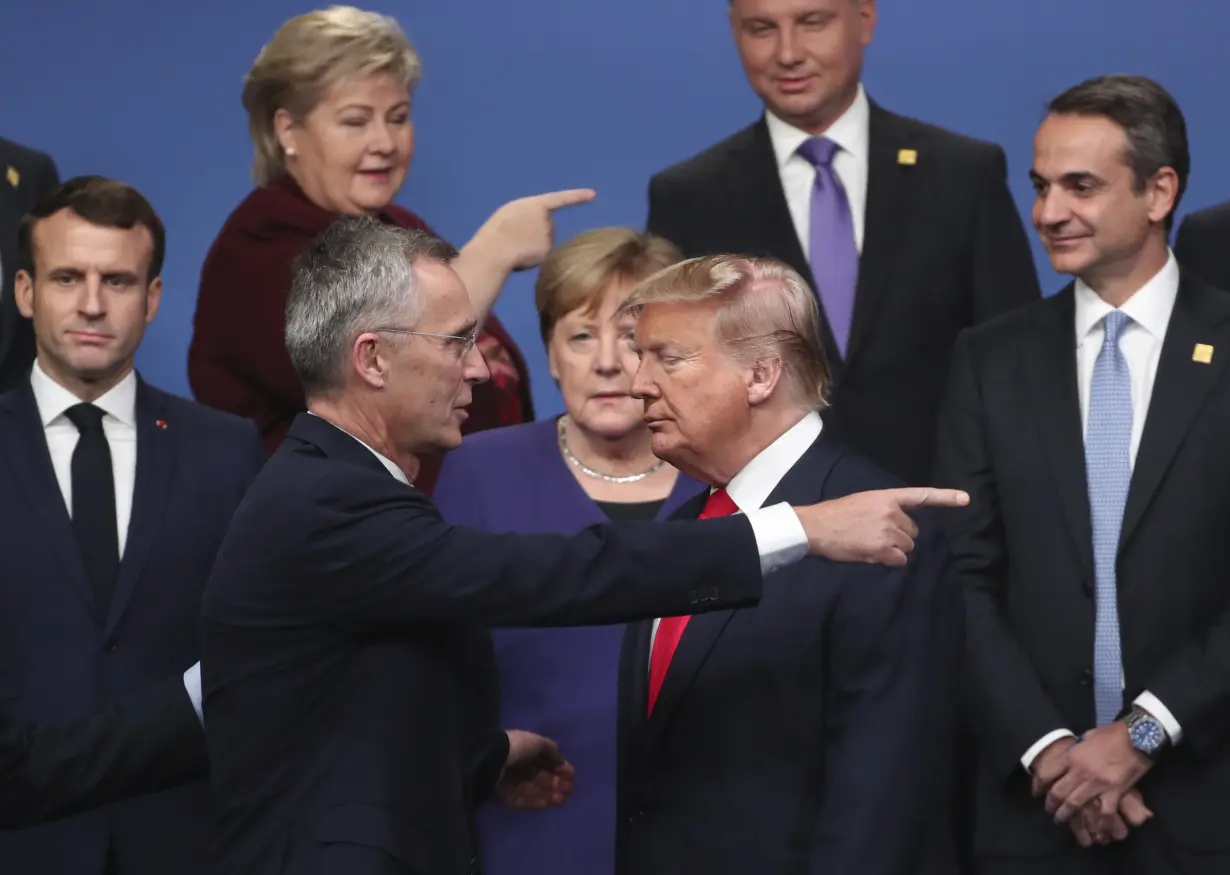
“Donald Trump’s admission that he intends to give Putin a green light for more war and violence, to continue his brutal assault against a free Ukraine, and to expand his aggression to the people of Poland and the Baltic States are appalling and dangerous,” Biden said.
WHAT DID TRUMP GET WRONG?
NATO members don’t pay to belong and don’t owe the organization anything other than contributions to a largely administrative fund. Trump clearly wasn't referring to those administrative payments.
His frequent complaint during his presidency, and now, has been how much NATO countries put into their own military budgets.
U.S. presidents before him raised that concern. In fact, it was in 2014, during the Barack Obama administration, that NATO members agreed to move “toward” spending 2% of GDP on national defense by 2024. Stoltenberg also has said members needed to invest more in their militaries.
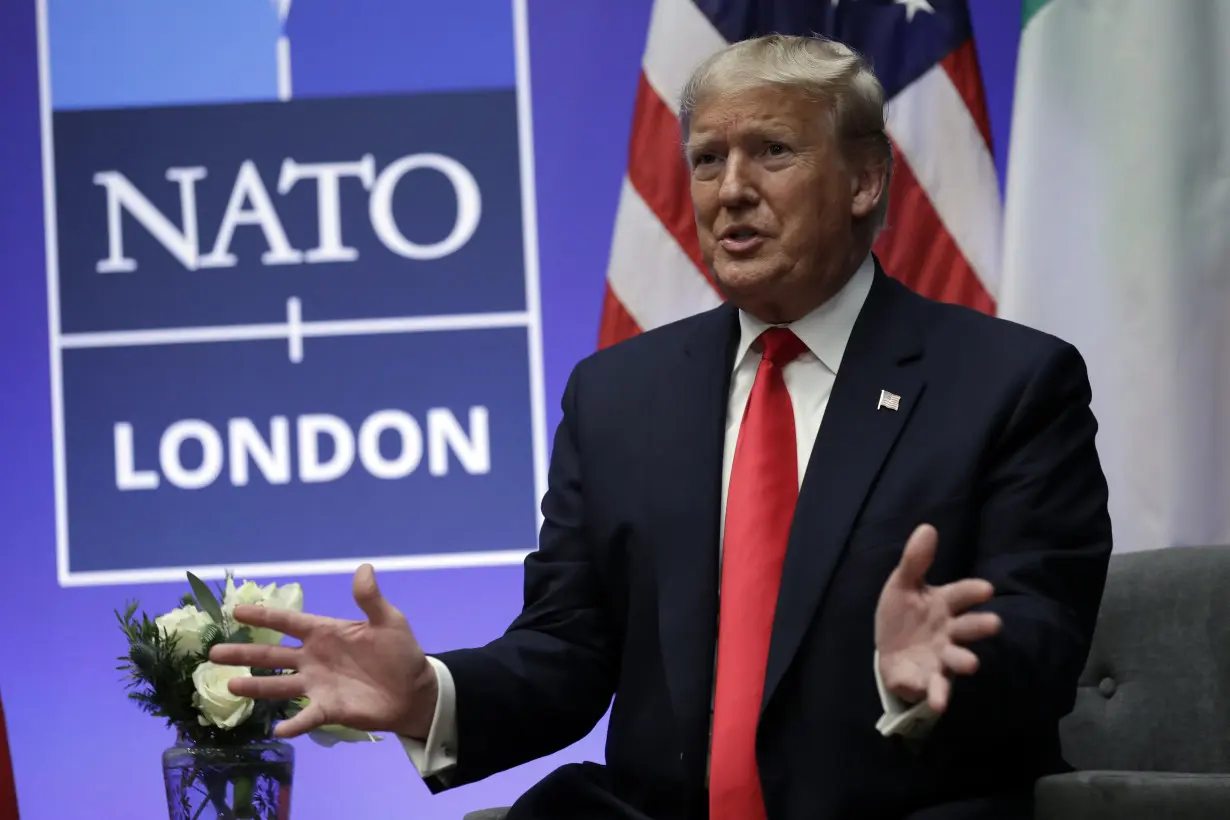
At their last summit, in Lithuania in July, NATO leaders adjusted that pledge by agreeing to spend at least 2% of GDP on their military budgets. No target date was set for meeting the goal.
The 2% is a benchmark that each member should spend on its own defense in order to be able to contribute to the joint defense of the alliance. However, the goal is voluntary, and there is no debt or “delinquency” involved.
The countries don’t pay the money to NATO but invest it in their own armed forces.
Russia's invasion of Ukraine almost two years ago has given them further impetus to beef up their armies.
WHAT IS NATO?
The North Atlantic Treaty Organization was founded after World War II in an attempt to stop the expansion of Soviet control in Europe as the eastern part of the continent was coming under the Kremlin's firm grip.
The alliance's first secretary-general, the British Gen. Hasting Ismay, said the goal was “to keep the Russians out, the Americans in, and the Germans down." The often repeated comment highlights how a fear of Russia's expansion has been part of the alliance's DNA from the beginning.
The collapse of the Soviet Union led some to question whether NATO still had a purpose. Russia, for its part, has observed the military alliance’s eastward growth with anger. President Vladimir Putin for years has warned that Moscow views NATO's expansion into what the country views as its historical sphere of influence as a threat.
Putin tried to justify his war against Ukraine in part by citing NATO’s enlargement, though Ukraine had no immediate prospects of joining the alliance when Russian troops entered the neighboring country in February 2022. However, NATO leaders have said that Ukraine will join the alliance at some point in the future.
NATO currently has 31 members. Finland became the newest member last year, breaking with decades of non-alignment after Russia invaded Ukraine. Sweden is hoping to join, too, but is still waiting for approval from Hungary, the only member that has not ratified the Scandinavian country's bid.
WHAT ELSE HAS TRUMP SAID ON THE ISSUE?
Trump has a history of misrepresenting NATO or suggesting that the United States might not honor its commitment to allies. Former national security adviser John Bolton said in a memoir that Trump was close to pulling the U.S. out of NATO in 2018.
Trump spoke that year about NATO as if it were a business going bankrupt until he came along. “I went to NATO. And NATO was essentially going out of business ’cause people weren’t paying and it was going down, down, down,” he said.
He also bemoaned that Americans were “the schmucks that are paying for the whole thing.” U.S. defense spending, while well above 2%, has actually been decreasing for years.
While Trump's hectoring of allies to spend more on defense during his presidency might have spurred some into doing so, Russia's invasion of Ukraine has been a greater catalyst in pushing them to make much larger investments.
WHEN HAS NATO COME TO AN ALLY'S DEFENSE?
On the ground, NATO has helped to keep peace in the Balkans and helped to provide security in Afghanistan after a U.S. led coalition invaded the country. The U.S. triggered NATO's common defense clause, known as Article 5, for the first and only time in the alliance's history after the Sept. 11, 2001 attack.
Even during his presidency, Trump threatened not to come to the aid of allies who might be under attack if they had not paid their dues.
His presidency raised questions about whether the U.S. would remain committed to the West's collective defense, fears returning in anticipation of a likely rematch between him and Biden.
A defense policy bill approved by the U.S. House of Representatives in December includes provisions that say the president must get the advice and consent of the Senate or an act of Congress before withdrawing the U.S. as a member of NATO.

 Trump has begun another trade war. Here's a timeline of how we got here
Trump has begun another trade war. Here's a timeline of how we got here
 Canada's leader laments lost friendship with US in town that sheltered stranded Americans after 9/11
Canada's leader laments lost friendship with US in town that sheltered stranded Americans after 9/11
 Chinese EV giant BYD's fourth-quarter profit leaps 73%
Chinese EV giant BYD's fourth-quarter profit leaps 73%
 You're an American in another land? Prepare to talk about the why and how of Trump 2.0
You're an American in another land? Prepare to talk about the why and how of Trump 2.0
 Chalk talk: Star power, top teams and No. 5 seeds headline the women's March Madness Sweet 16
Chalk talk: Star power, top teams and No. 5 seeds headline the women's March Madness Sweet 16
 Purdue returns to Sweet 16 with 76-62 win over McNeese in March Madness
Purdue returns to Sweet 16 with 76-62 win over McNeese in March Madness
